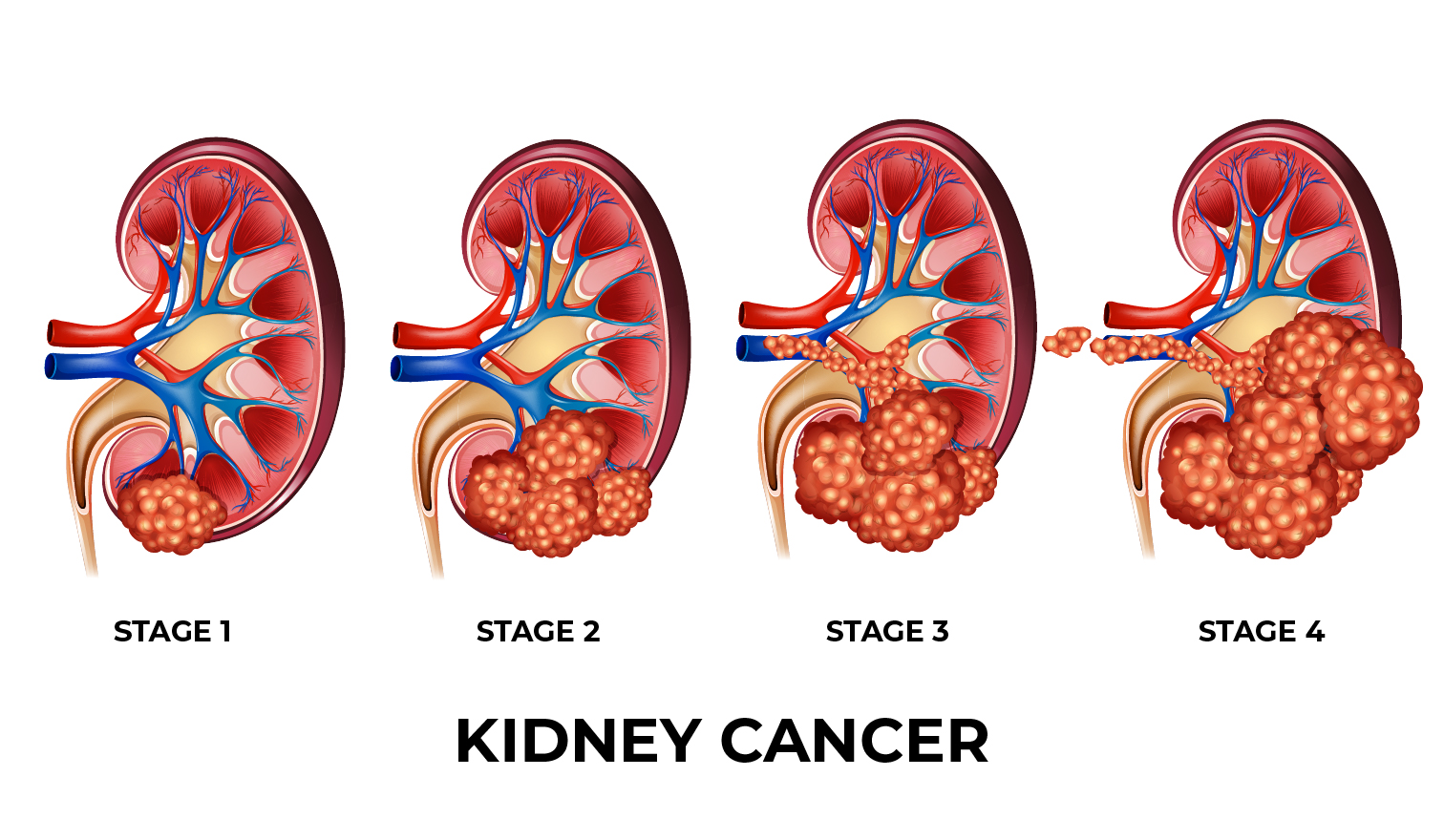Kidney Cancer
Kidneys are two bean-shaped organs, each about the size of your fist, located behind your abdominal organs, with one kidney on each side of your spine. The purpose of the kidneys is to filter your blood and produce liquid waste, urine, which you eliminate from your body by urinating. Kidney cancer arises from these organs. In adults, renal cell carcinoma is the most common type of kidney cancer, although other types are possible. Kids are more likely to develop kidney cancer called Wilms’ tumor, or nephroblastoma.
The detection of kidney cancers has undergone a revolution with the common use of CT scans, which diagnose more tumors early in the course of the disease, allowing for many people to undergo curative treatment while maintaining their kidney function. The accidental discovery of more kidney cancers permits for earlier and more effective therapy, especially with the advent of minimally invasive surgical techniques.

Symptoms
Kidney cancer usually doesn’t have signs or symptoms in its early stages, although there are more than 10 documented symptoms which may occur in advanced disease, including pain and blood in your urine. Signs and symptoms may develop, including:
- Blood in your urine, which may appear pink, red or cola colored
- Pain
- Loss of appetite
- Unexplained weight loss
- Fatigue
Causes
It’s not clear what causes most kidney cancers. There are associated factors such as obesity and smoking, and there are numerous DNA abnormalities that can cause a tumour. Some families pass these genes down from one generation to the next.
Factors that can increase the risk of kidney cancer include:
- Age
- Smoking
- Obesity
- High blood pressure
- Kidney failure
- Certain inherited syndromes and family history.
Treatment
Many people with kidney cancer need surgical therapy in the form of kidney removal or partial kidney removal. This can be done using multiple different techniques, the traditional open method, the laparoscopic approach, or robotic assisted approach. The latter utilizes surgical technology to limit the size and scope of the operation, which improves your recovery and gets you back to normal life.
Advanced cancer needs to be treated with oral medications and may require involvement by a medical oncologist, and radiation oncologist.
TREATMENTS & CONDITIONS
Kidney Stones
kidney stones are extremely common and can present with acute severe pain, kidney dysfunction, or severe infection. It is incredibly important to seek care for kidney stones to

Surgery for Kidney Cancer
Surgery for kidney cancer can be personalized to the anatomy of the kidney and the location of the tumor. Often, only the tumor and a healthy rim of normal tissue can be removed,

Minimally Invasive Surgery Kidney & Ureter
Dr. Feifer specializes in the middle invasive approach to kidney cancer, often able to remove large tumours and reconstruct the ...

Surgery for Stones in Urinary Tract
Kidney stones are hard mineral deposits made from calcium or other cellular products such as uric acid or oxalate.



